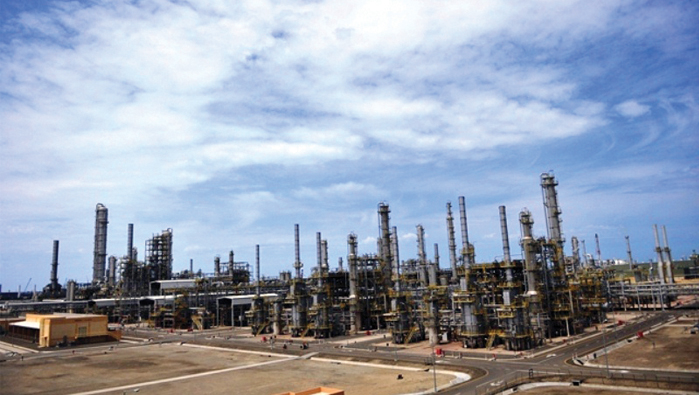
Liwa: A new industrial project in Liwa is expected to create up to 1,200 new jobs for talented workers in Oman, one of the companies involved in the project has said.
The Liwa Industrial Plastics Complex (LPIC) is currently being set up in the town of Liwa—some 250km from the capital, Muscat—and a half-an-hour drive from the industrial city of Sohar, with the objective of reducing the country’s dependency on money earned from oil and gas exports.
The plant will help Oman, for the first time, to produce polyethylene, the form of plastic that has the highest global demand.
“It is anticipated that 150 technicians and 350 operators will be required to manage the new facilities, which are also expected to create more than 1,200 jobs in the local area,” said Youssef Goughbar, director of GCC sales and marketing for Nexans, the company which is providing lead-free cables for safe refining and petrochemical processing.
“LPIC will be equipped with Nexans’ instrumentation, fibre optic telecommunication cables and fieldbus cables, supplied through the Group’s established partnership with Rexel, the global cable distributor.”
Nexans will be working alongside Orpic (Oman Oil Refineries and Petroleum Industries Company), which is likely to cost US$4.5 billion and is expected to be operational in 2020, when it will be produce a total of 1.4 million tonnes of polyethylene and polypropylene.
The complex has six main components, including a natural gas extraction plant in Fahud, a 300km gas pipeline between Sohar Industrial Area and Fahud, a steam cracker unit to break down petrochemicals into simpler forms, high and low density polyethylene plants, an aromatics plant and a polypropylene plant.
“This guarantees efficient project execution to customers, eliminating supply delays and allowing for improved management of emergencies, cable and bulk material inventory management, as well as on-site stocking,” added Goughbar.
“The fiber optic telecommunications cables feature Nexans’ innovative Hypron design which is a lead-free multi-layer protection sheath that serves as an alternative to lead-sheath cables for onshore oil & gas installations, especially within refineries and petrochemical installations in moist areas where corrosive aromatic hydrocarbons are present.”
“This eco-designed solution is less costly, lighter and allows for easier transportation, storage and installation,” he said. “Worldwide demand for high and low-density polyethylene is increasing, especially within Asia, where it is an important raw material for the manufacture of various plastic products for both domestic and industrial uses.”
Nexans also told Times of Oman about some of the challenges they’d faced while approaching this project.
“From a provider’s prospective, the biggest challenge has been to fulfil the project take-off in the urgent mode with very short deadlines for manufacturing the first batch of cables,” explained Goughbar.
“Thanks to the simultaneous and coordinated work of three Nexans facilities, we were able to fulfill a really demanding delivery time. The additional complexity that added to such delivery was the fact that many different cable families were needed at the same time, and these included instrumentation, optical fibre cables and telecom connections, among others.”
“Ultimately, our combined production capacities together with wide experience in managing oil and gas complex projects made it possible to deliver first-class service, as expected by the customer,” he added. “The oil and gas industry is – as is any other –always experiencing a need to bring in new technologies in terms of fire and chemical protection, environmental protection, risk management and fully controlled project executions.”
“Liwa’s Industrial Plastics Complex project is a major step in that sense and will surely be a benchmark for many future projects in the region.”